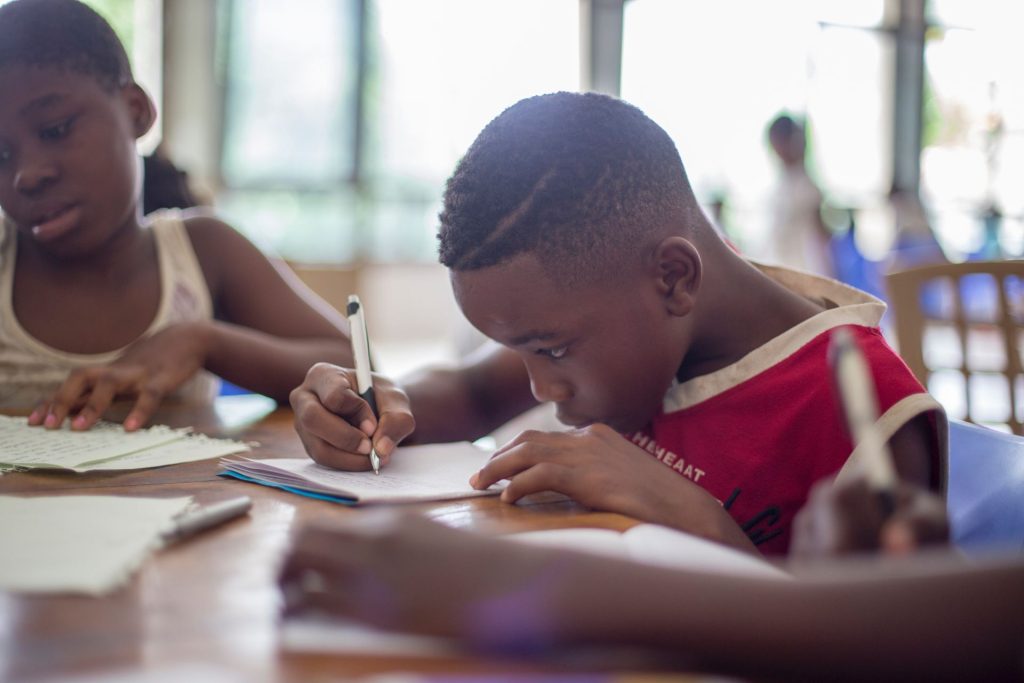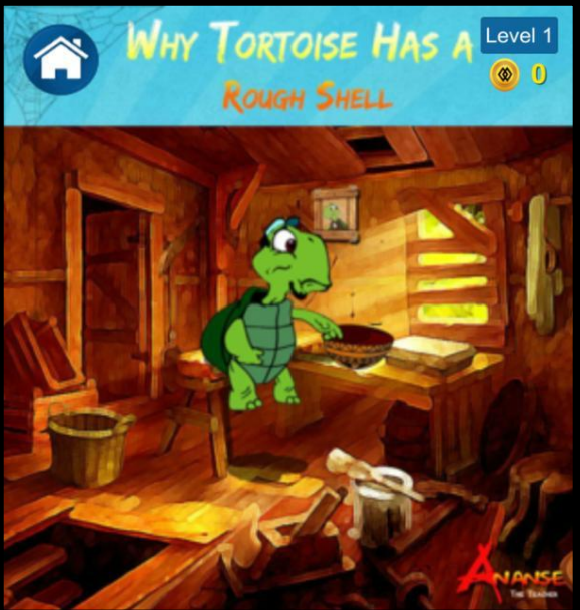My placement with UCL International Development Hub: Young at Heart Ghana
By Medical Physics and Biomedical Engineering, on 17 February 2023
 The experience I had working with Young at Heart Ghana could be summarised in 3 words: amazing, inspiring, and eye-opening. Before the placement, I knew almost nothing about the Ed-tech industry but after having interesting conversations with the team at Young at Heart, I can confidently say with no doubt that I am familiar with the industry especially the accessibility of the use of educational technology in developing countries.
The experience I had working with Young at Heart Ghana could be summarised in 3 words: amazing, inspiring, and eye-opening. Before the placement, I knew almost nothing about the Ed-tech industry but after having interesting conversations with the team at Young at Heart, I can confidently say with no doubt that I am familiar with the industry especially the accessibility of the use of educational technology in developing countries.
Young at Heart Ghana is an Ed-tech organization which aims to make STEM education more accessible to students in schools through customised digital platforms and software. Throughout the placement, I actively engaged with their operations, research, and engineering departments, all envisioning the same mission: to champion access to Ed-tech spaces. Knowing that you are involved in a community, where more and more young students are getting access to digital content and practical knowledge because of the projects being done at Young at Heart is incredible.
During the placement, I took part in the user-testing for Ananse Hub, a teaching platform. I created STEM teaching material on the Solar System using infographics for the platform. I also developed quizzes related to the content material. Using the discussion platform in the hub, I presented the information and recorded voice notes. The team then provided feedback and outlined the technical difficulties occurring with the platform. The task was very insightful, such that using infographics can help keep the audience’s attention, and further enhanced my presentation and storytelling skills.
 Since the internship was combined with in-person and remote fellows, I collaborated with the other remote fellows in developing a survey as a follow-up of the report the in-person fellows did. As a team, we created surveys in relation to justice, well-being and access. In the development of the survey, I reviewed published papers on access to Ed-tech platforms and measured the variables specific to distributive justice. In distributive justice, I analysed different variables such as internet connectivity, data and cloud storage availability in school infrastructures, and schools in different regions in Ghana. I then created a survey for different stakeholders like parents, teachers and technicians, asking them about their student’s access to technology and its reliability of it. Gaining more insights into the intersection between justice and Ed-tech was enriching and broadening. One of the highlights was learning more about the Vegas & Winthrop model, which is an aspiration of education post-COVID. Where the school is in the centre of the community, it powers every single student’s learning and development using every single path possible, from technology to health and social protection agencies.
Since the internship was combined with in-person and remote fellows, I collaborated with the other remote fellows in developing a survey as a follow-up of the report the in-person fellows did. As a team, we created surveys in relation to justice, well-being and access. In the development of the survey, I reviewed published papers on access to Ed-tech platforms and measured the variables specific to distributive justice. In distributive justice, I analysed different variables such as internet connectivity, data and cloud storage availability in school infrastructures, and schools in different regions in Ghana. I then created a survey for different stakeholders like parents, teachers and technicians, asking them about their student’s access to technology and its reliability of it. Gaining more insights into the intersection between justice and Ed-tech was enriching and broadening. One of the highlights was learning more about the Vegas & Winthrop model, which is an aspiration of education post-COVID. Where the school is in the centre of the community, it powers every single student’s learning and development using every single path possible, from technology to health and social protection agencies.
One of the products Young at Heart Ghana is Ananse the Teacher app. The app combines African folklore and provides a medium where stories and learning intersect. The lesson usually starts with an African folklore story, engaging students with the STE(A)M lesson, followed by practical experiments and hands-on activities. We were tasked to plan and create a lesson for Ananse the Teacher app following the science curriculum for primary schools in Ghana. I designed the lesson on the topic of Materials, where students get to learn and classify everyday materials and objects based on their properties. I started with an African folklore story “Why the Tortoise has a rough shell?”, describing the tortoise’s shell properties and the properties of other objects that appeared in the story, linking it to the lesson. I also categorized materials into different sections: Natural materials, Converted materials, and Synthesis. This ensures that students know the different types of materials and where they fit into the classification. Finally, I created hands-on activities and projects to end the lesson. It not only enhanced my design and creativity skills, but I also learned that it is important to relate it to the student’s culture and background. It makes it more relatable to students’ everyday life, hence leading it to be more interesting and engaging. One of the highlights was engaging in a conversation with the founding director at Young at Heart, Josephine Marie Godwyll. She told us how children in Ghana don’t know the difference between broccoli and cauliflower, but that is because they have never tried it before, as it was never a thing in Ghana. Therefore, it is crucial in familiarizing yourself with the culture of the country when developing teaching materials!
 Throughout the placement, we had multiple extracurricular activities from the team at Young at Heart. We learnt about a variety of topics from business to pitch training to career journeys. It was very insightful as listening to others about their career journey is at the same time further educating yourself. They gave advice such as “Don’t be afraid to step outside your comfort zone as you never know if you don’t try.” If you try you may discover new opportunities that may peak your interest! We also had discussions and interactive conversations with the co-founder at Young at Heart, Martin Bruce. Martin gave us two videos to watch. Both videos are pitches at the Royal Academy of Engineering. We then stated the differences both good and bad, the takeaways and the key points. It was very interesting as judging from a different perspective, and we learnt so much more about elevating your pitch and starting with a purpose at the very beginning. Lastly, we had an engaging conversation about our career journeys with other remote fellows and Martin, what we envision doing in the future etc. Biggest takeaway: What you study doesn’t mean what you will do in the future as a career. Your interests may change from time to time and that is okay. University is for you to explore what you like and what you don’t like until you find what is your purpose. These quotes will be on my mind when I am having career troubles in the future.
Throughout the placement, we had multiple extracurricular activities from the team at Young at Heart. We learnt about a variety of topics from business to pitch training to career journeys. It was very insightful as listening to others about their career journey is at the same time further educating yourself. They gave advice such as “Don’t be afraid to step outside your comfort zone as you never know if you don’t try.” If you try you may discover new opportunities that may peak your interest! We also had discussions and interactive conversations with the co-founder at Young at Heart, Martin Bruce. Martin gave us two videos to watch. Both videos are pitches at the Royal Academy of Engineering. We then stated the differences both good and bad, the takeaways and the key points. It was very interesting as judging from a different perspective, and we learnt so much more about elevating your pitch and starting with a purpose at the very beginning. Lastly, we had an engaging conversation about our career journeys with other remote fellows and Martin, what we envision doing in the future etc. Biggest takeaway: What you study doesn’t mean what you will do in the future as a career. Your interests may change from time to time and that is okay. University is for you to explore what you like and what you don’t like until you find what is your purpose. These quotes will be on my mind when I am having career troubles in the future.
I got to work and experience with a variety of different sectors: marketing, engineering, business and content creating. This placement not only helped me grow personally but professionally as well. By working with others and trying different sectors, I could see substantial development in my future career and real-world experience.
Working with the brilliant Young at Heart team on advancing access to high-quality education through Ed-tech solutions was very insightful and I would highly recommend this placement project to other students at UCL. Applications open in Dec/ Jan, for more information, please visit the following link: https://liveuclac.sharepoint.com/sites/UCLInternationalDevelopmentHub
This blog was written by Rachel, Biomedical Engineering
 Close
Close

